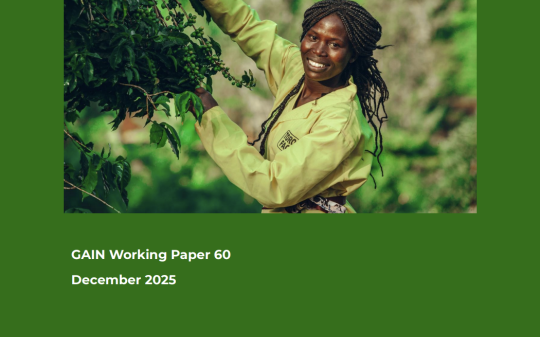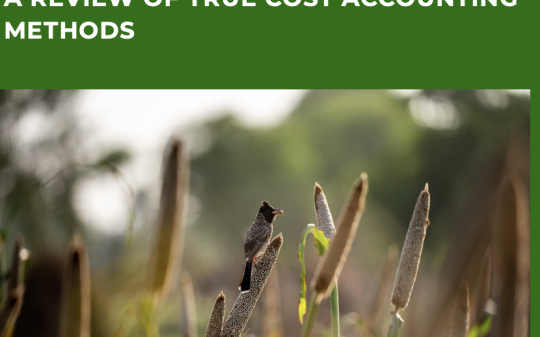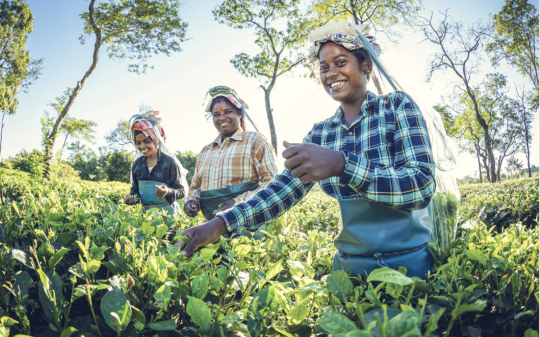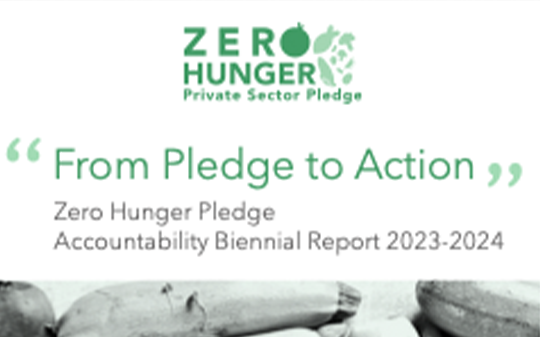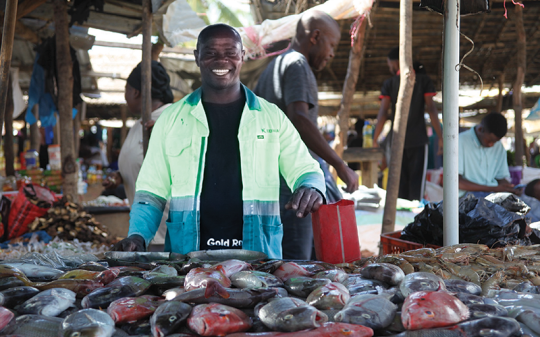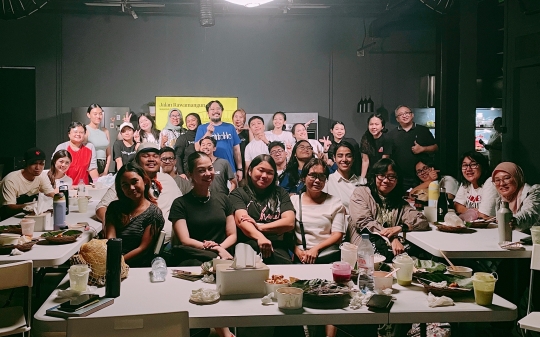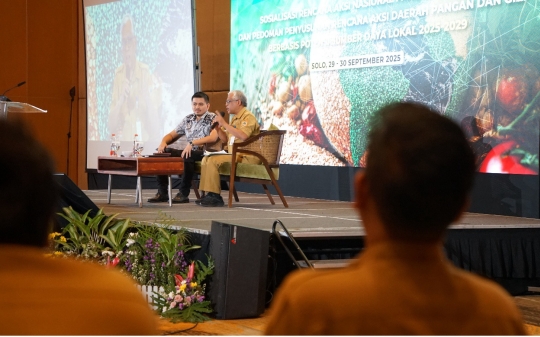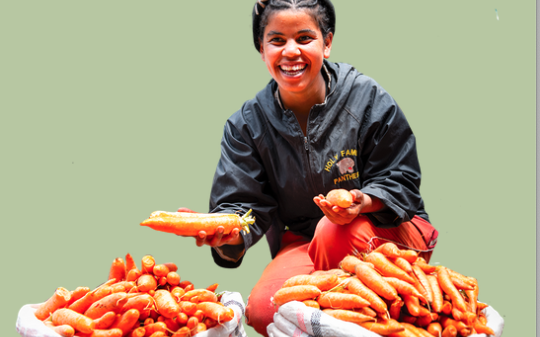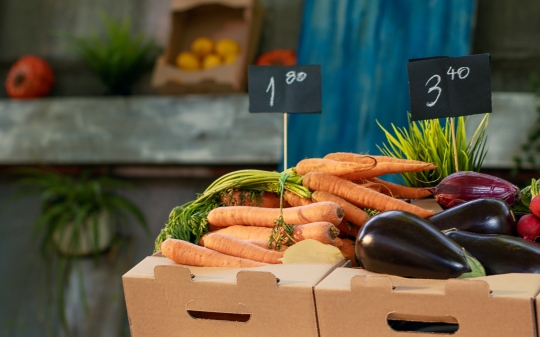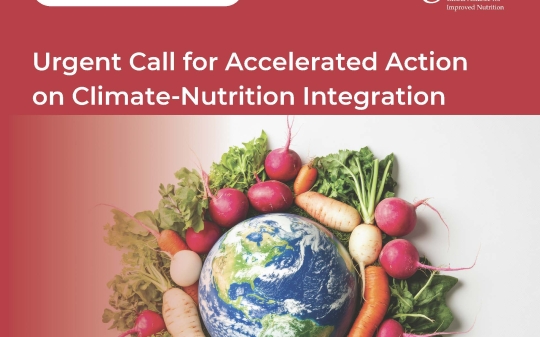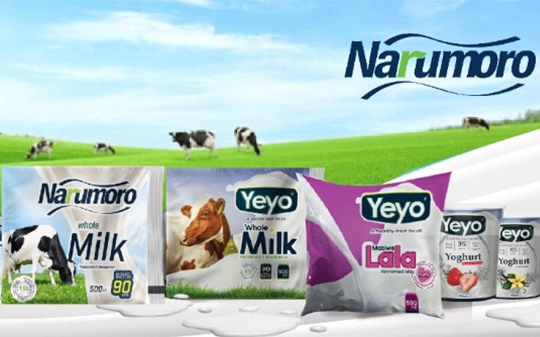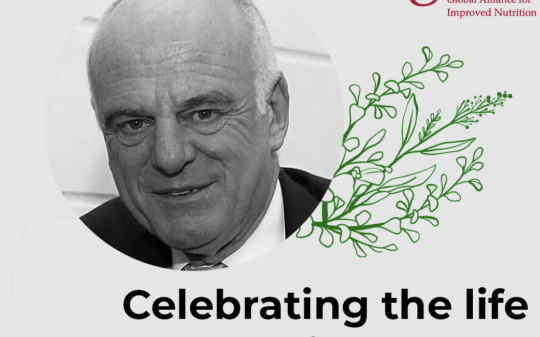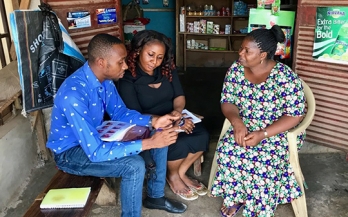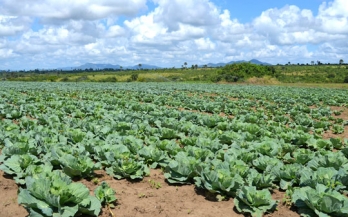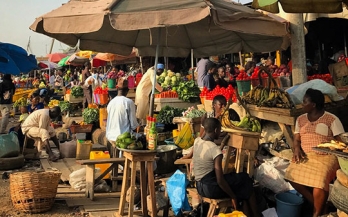- 01/12/2016
This report presents the results of an evaluation of the Shakti+ pilot. The main objective of the evaluation was to assess the likelihood that Shakti+ activities contributed to the two primary outcomes that the programme implementers aimed to achieve, specifically, the use of Knorr1 iron-fortified bouillon cubes in cooking and the addition of green leafy vegetables to soups and stews.
- 01/02/2018
The purpose of the survey was to assess the household coverage and potential contribution of fortified foods to the micronutrient intake among women of reproductive age in two states: Kano and Lagos.
- 01/03/2018
In an effort to explore the potential of new food vehicles for large-scale food fortification in West Africa, GAIN took advantage of two FACT surveys conducted in West Africa that measured quality, coverage and/or consumption of mandatorily fortified foods, for exploring the potential of other industry manufactured foods for fortification.
- 01/11/2017
This research brief provides the key findings from a study commissioned by GAIN'S Postharvest Loss Alliance for Nutrition to conduct a landscape analysis to better understand the dried tomato production and market in Nigeria. Structured questionnaires were used to elicit information on socio-economic characteristics of selectors processors, traders, and consumers.
- 01/03/2018
This research brief summarizes findings from the national cold chain capacity mapping of Nigeria, conducted between December 2017 and February 2018. Despite having the largest economy in Africa, Nigeria has among the world’s highest burdens of malnutrition. Improving supply chain infrastructure and food storage practices has the potential to significantly reduce postharvest losses and waste across the country.
The 2015 Nigeria Fortification Assessment Coverage Toolkit (FACT) survey is a cross-sectional survey that is representative at the state level in the two states of Kano and Lagos. The purpose of the survey was to assess the coverage and potential contribution of fortified foods to the micronutrient intake of the population.
- 15/06/2011
Schoolchildren in Nigeria are rarely targeted by micronutrient interventions. This study determined the effects of a multi-micronutrient beverage on biochemical and anthropometric indicators of nutritional status among schoolchildren participating in a pilot school feeding program in Nasarawa State, Nigeria.
- 01/03/2015
This study examined whether the Maternal, Newborn and Child Health Weeks (MNCHW) in Nigeria would present an opportunity to raise awareness of and demand for the use of zinc and ORS in the treatment for diarrhoea.


